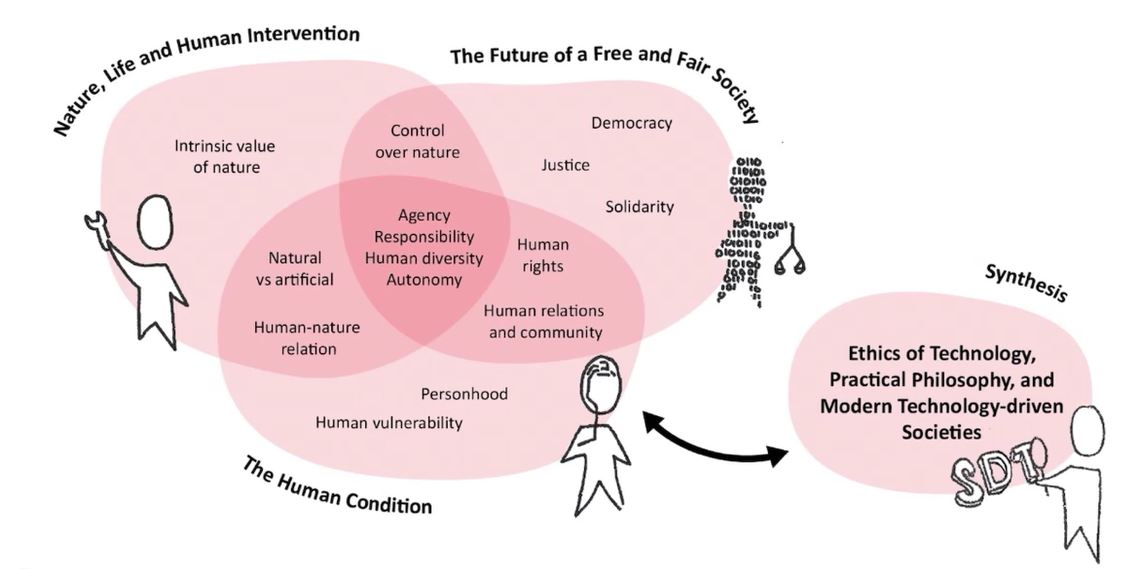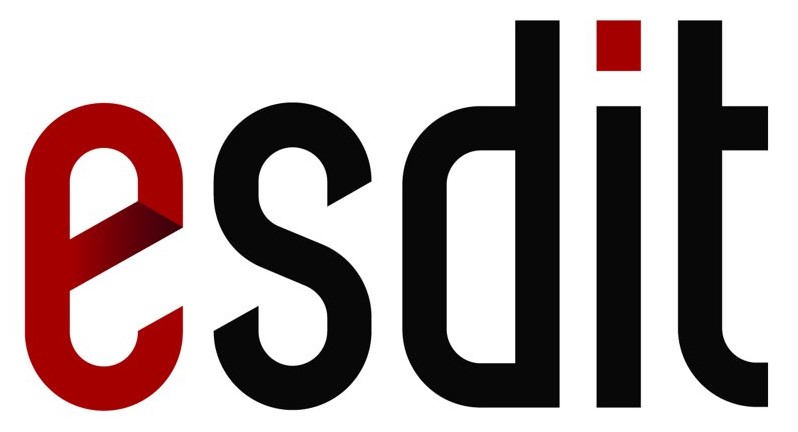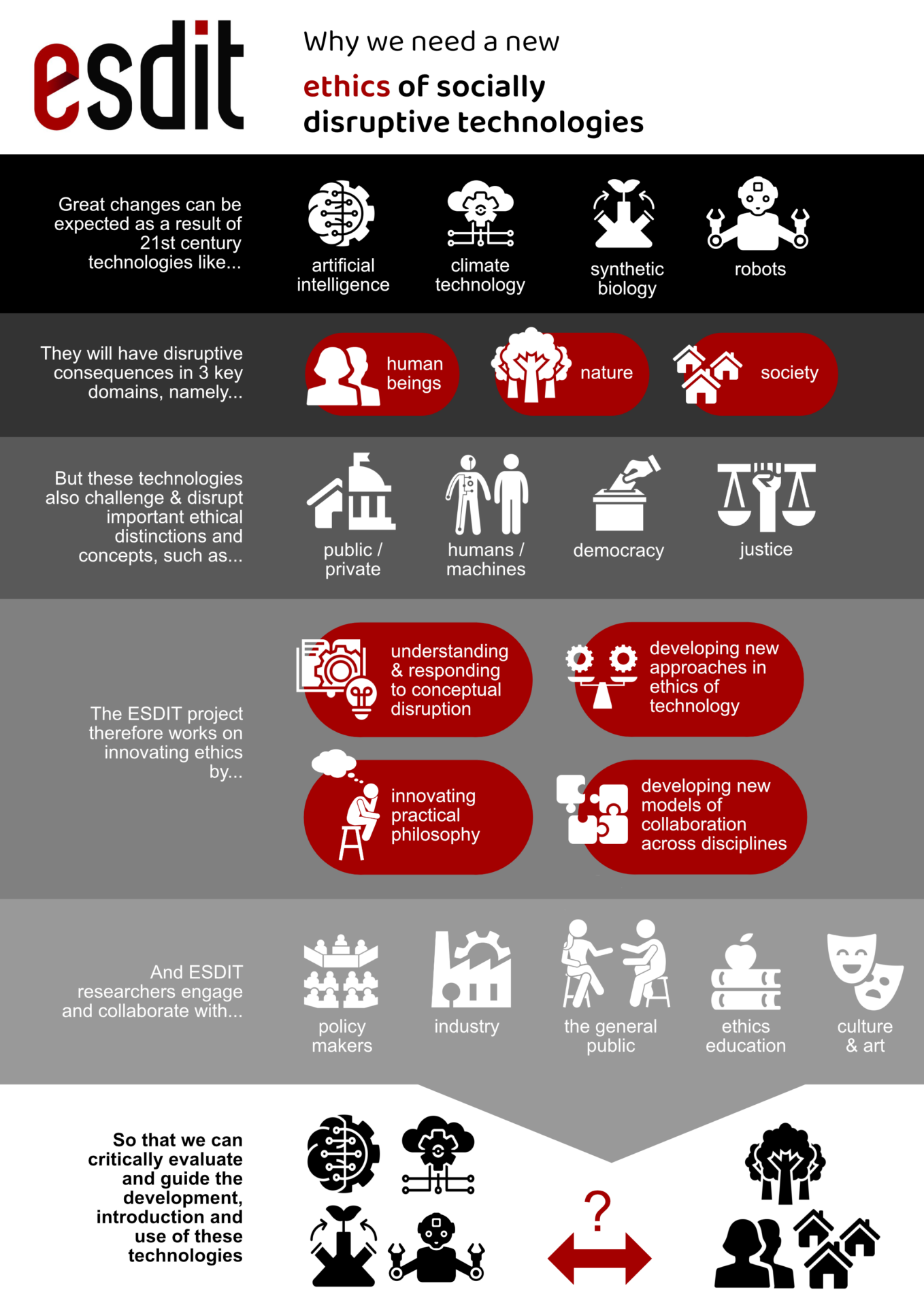About the ESDiT programme
The aim of the research programme is to develop a comprehensive philosophical understanding of the socially disruptive technologies (SDTs) of the 21st century, and in particular their challenge to the very concepts and values that we normally appeal to in our moral thinking. These concepts and values form the basis of our current moral, political, and anthropological order. There is an urgency to this aim, as we need to develop new moral frameworks to guide these technologies for the betterment of humanity.
The need for a reflective turn
We are now at the beginning of a new era of technological innovation; New generations of the technologies that have emerged since the second world war are converging and undergoing widespread integration. This makes whole new fields possible, including artificial intelligence, robotics, synthetic biology, nanomedicine, next-generation genomics, neurotechnology and geo-engineering. These are socially disruptive technologies (SDTs) that have the potential to radically alter everyday life, cultural practices and social and economic institutions.
Societal disruption may well be necessary and desirable for responding to pressing global problems such as climate change and depletion of natural resources. But the technologies also raise tough moral questions that are in need of ethical evaluation. A complication is they may affect the basic concepts and values that we normally appeal to in our ethical thinking, such as the distinction between nature and artifact or our conceptions of freedom and responsibility. A reflective turn in the ethics of technology is therefore necessary.
A study of key ethical and philosophical concepts
The ESDIT research program in ethics and practical philosophy of technology seeks to realize a reflective turn. Our aim is to reorient the field of ethics of technology by taking up the challenge that socially disruptive technologies pose to our core concepts. In particular, to
- the concepts that underlie our moral self-understanding, such as (moral) agency, autonomy, human interdependence, and responsibility;
- the concepts that form the basis of our political, social and legal institutions, such as democracy, justice, and equality;
- the basic ontological categories that we use to order our world, such as the distinctions between natural and artificial, humans and machines, public and private, and agents and physical systems.

Developing new concepts, theories and methods
In this research programme, we aim to develop 21th–century ontological and moral concepts for a 21th–century world. The conceptual reevaluations and innovations that this research brings forth will be used not only to innovate ethics of technology, but also the field of ethics and practical philosophy as a whole, as well as the social sciences. In parallel we aim to develop new theories and methods that are necessary to understand, morally assess and intervene in the development and implementation of this new generation of socially disruptive technologies.
Our Three focal points
In the programme we will focus on three clusters of emerging SDTs:
New digital technologies
including robotics, artificial intelligence, machine learning, Internet of Things (IoT), big data, blockchain, social media, and quantum computing.
New bio- and brain technologies
including gene editing, gene drives, synthetic biology, neurotechnology, advanced medical and food technologies, and technologies for human enhancement.
New environmental & sustainable technologies
including energy technologies, water technologies, recycling and other technologies for the circular economy, climate engineering, and bio-based and low-carbon technologies.
Our Objectives
01.
Understanding the disruptive effects of 21st century SDTs
We investigate the philosophical and ethical implications of the new generation of SDTs in the 21st century and their socially disruptive impacts on humans, nature, and society.
02.
SDTs and Conceptual Disruption
We examine critical philosophical and ethical concepts challenged by SDTs and investigate what reassessments, revisions, and innovations are needed, taking into account philosophical insights from non-Western traditions.
03.
New approaches for ethical assessment and guidance of SDTs
We develop innovative, comprehensive, and inclusive approaches in ethics and philosophy to study the new generation of SDTs and their impacts on humans, nature, and society.
04.
Technology ethics and multi- and transdisciplinarity
We aim to innovate the ethics and philosophy of technology by developing new collaborative models between philosophers, engineers, social scientists, policymakers, designers, and artists to improve philosophical and ethical analysis and responsible innovation.
05.
Innovating practical philosophy
Our studies of conceptual disruption and our proposals for revisions of philosophical concepts aim to innovate the field of practical philosophy and, by implication, the ethics of technology.
ESDiT Research Lines
Research in the ESDiT programme is structured along nine research lines. The goal is to develop an integrated assessment of SDTs and the moral frameworks needed to guide their development.

Art

Conceptual Disruption

Democracy, Justice & Solidarity

Human Nature, Agency & Autonomy

Intercultural Philosophy

Nature & Sustainability

New Methods for Ethics

STEM (Science, Technology, Engineering & Mathematics)


